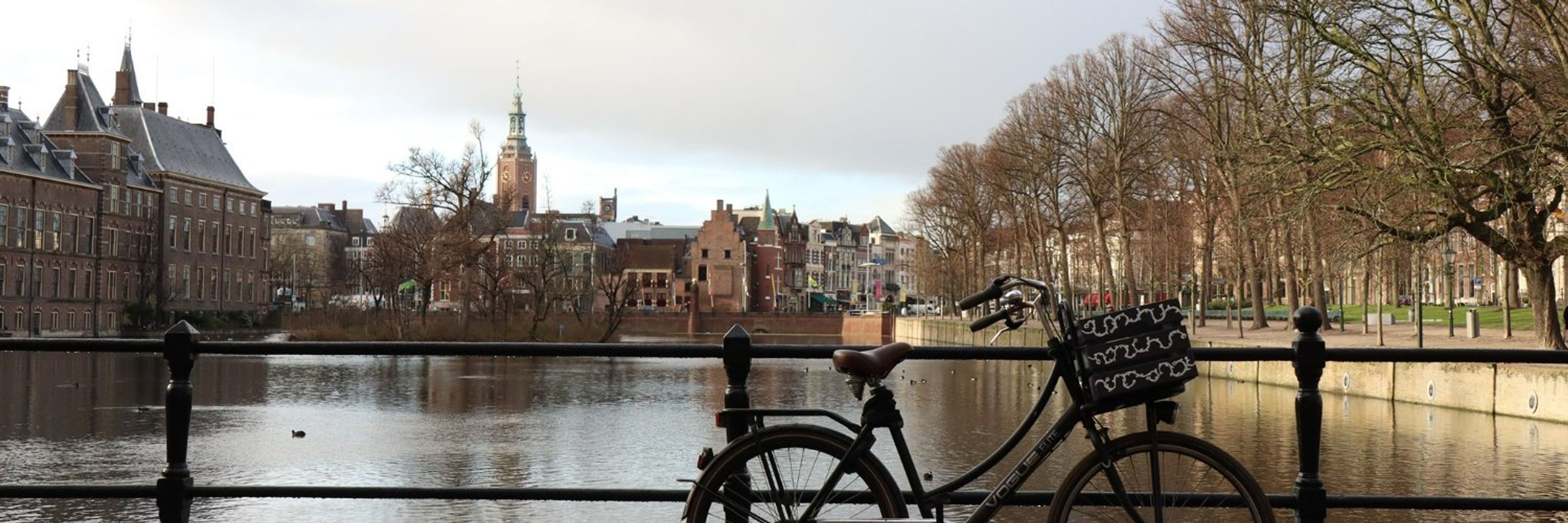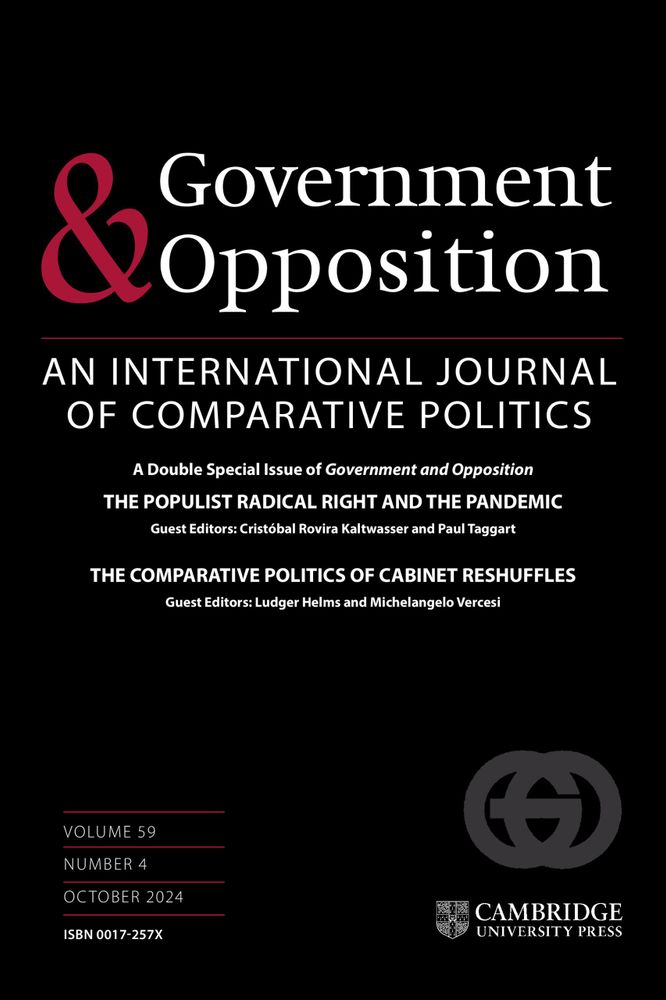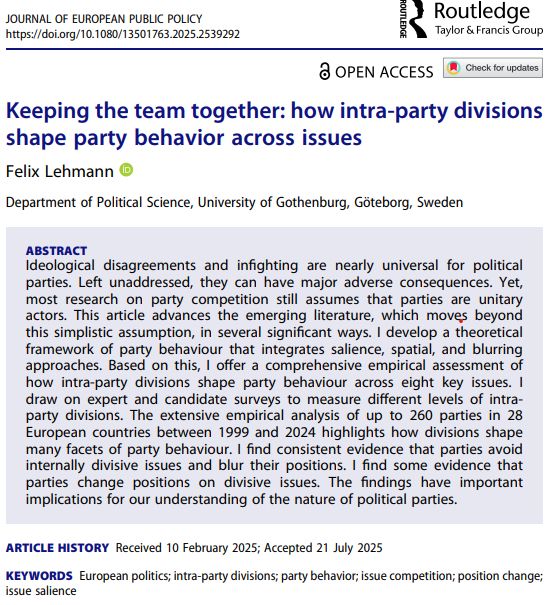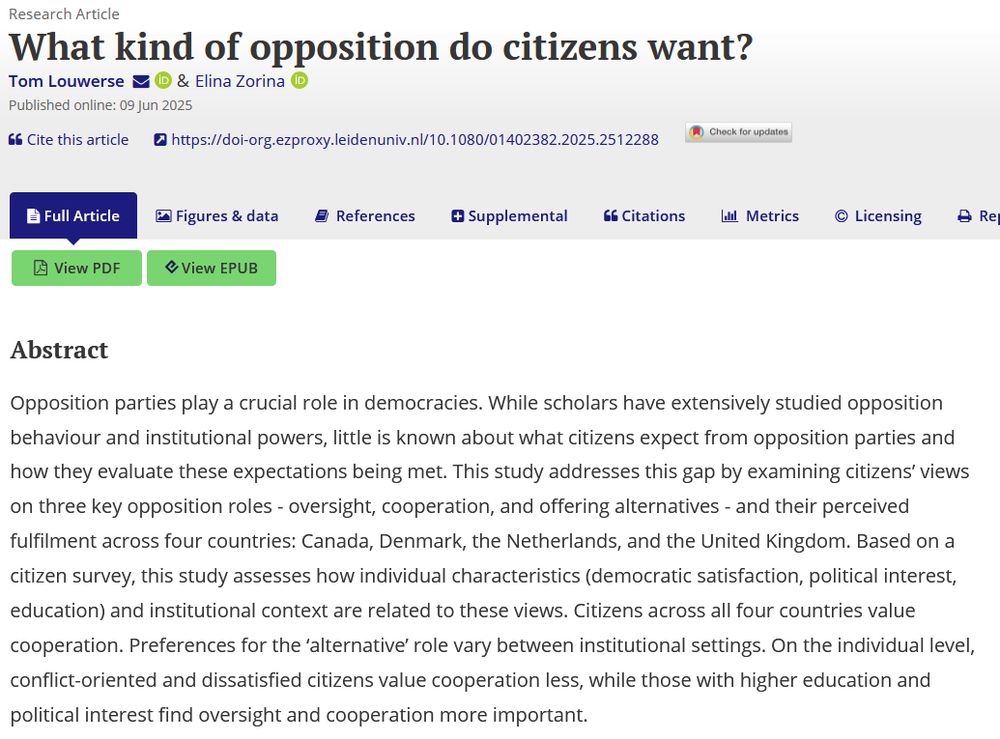Rick van Well
@rickvanwell.bsky.social
1.1K followers
370 following
29 posts
Politicoloog / Political scientist | Avans Hogeschool | @UniLeiden.bsky.social | Faces of Science
Posts
Media
Videos
Starter Packs
The Loop
@ecprtheloop.bsky.social
· Sep 3

Why opposition parties sometimes help governments pass laws
Opposition parties are expected to challenge the government, but they do not simply oppose for opposition's sake. Drawing on over 75 years of data, Rick van Well explains that when deciding how to beh...
bit.ly
Reposted by Rick van Well
Tom Louwerse
@tomlouwerse.nl
· Aug 28

Wat verwachten burgers van oppositiepartijen? - StukRoodVlees
Met het uittreden van NSC uit de coalitie is de crisis in de regering compleet. Het experiment van een ‘programkabinet’ met PVV, VVD, NSC en BBB kende fundamentele tegenstellingen en viel uiteindelijk...
stukroodvlees.nl
Rick van Well
@rickvanwell.bsky.social
· Aug 26

Hoe heurt het eigenlijk? Parlementaire verhoudingen onder partijpolitieke druk
Op dinsdag 7 oktober 2025 vindt de jaarlijkse Rudy B. Andeweglezing plaats in het Academiegebouw in Leiden. Dit jaar verzorgt em. prof. dr. Ruud Koole de lezing, met als titel: Hoe heurt het eigenlijk...
www.universiteitleiden.nl
Reposted by Rick van Well
Reposted by Rick van Well
Reposted by Rick van Well
Reposted by Rick van Well
Matthijs Rooduijn
@mrooduijn.bsky.social
· Jun 10
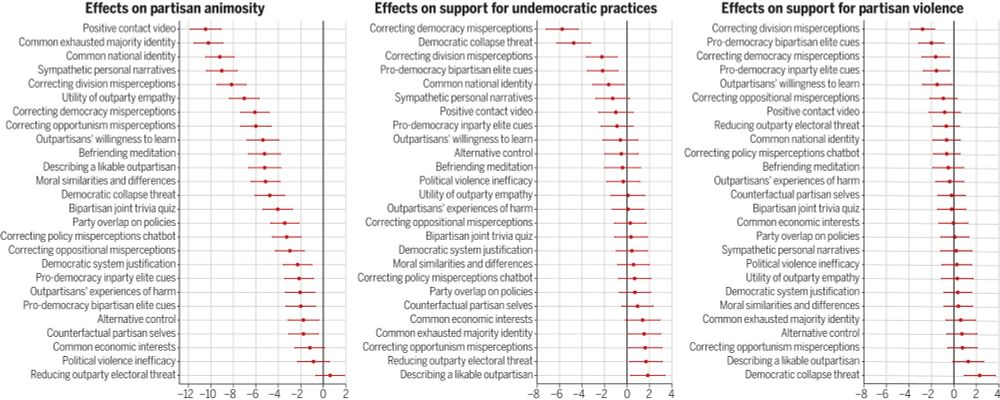
Input gezocht: welke interventies versterken de democratie in Nederland? - StukRoodVlees
De zorgen over onze democratie nemen toe. Veel Nederlanders ervaren een groeiende polarisatie en ergeren zich aan de toon van het politieke debat. Tegelijkertijd zien we elke dag hoe kwetsbaar de demo...
stukroodvlees.nl
Reposted by Rick van Well
Reposted by Rick van Well
Casper Albers 🟥
@casperalbers.nl
· Jun 8
